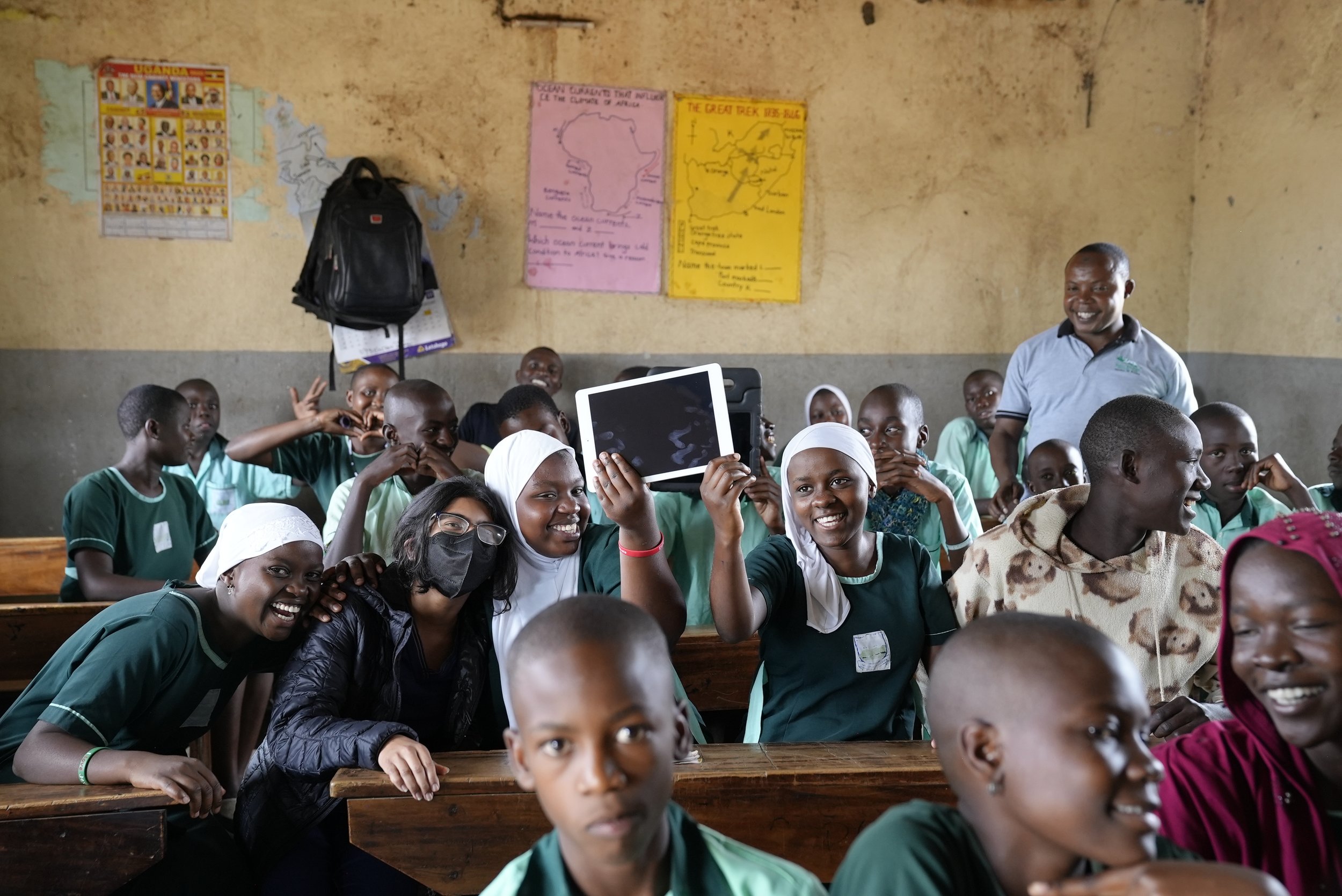remote information for sustainable education
Improving education to inspire children to pursue sustainable, healthcare careers rather than jobs.
$
of technology donated
After founding ASK, where I connect clinics in underserved areas of Sub-Saharan Africa to medical specialists across the United States, I was determined to help remedy the lack of accessible healthcare care internally and found a solution nested in education. As I delved deep into why so few children attended school in Uganda, I uncovered the adverse history of one of the most indigenous tribes in Africa, the Batwa people.
The history of the batwa
The Batwa used to live in huts in the rich forests of Uganda. Hunting and gathering fruits, vegetables, meats, and honey, the forests were their homes, their culture, their lives. However, this was stolen from them in the 1990s.
The Batwa were evicted from their homes when the government made the Bwindi, the Mgahinga, and the Echuya forests national parks, protecting the rare mountain gorillas but not the endangered people. As I interviewed Esrael, a Batwa working in Impermate village, he expressed that nearly all Batwa people, including himself, still remember the fear that pulsed through them when they heard guns fired up to the sky and voices forcing them to leave. As compensation, the Batwa were given farmland yet they did not know how to farm. Consequently, most of the land was sold causing the Batwa to disseminate and begin to lose their culture manifested within the depths of the forests. Furthermore, as we were conversing, he admitted, “Sometimes I feel like the gorillas have a better lifestyle than us [Batwa].” Tourists flood into Uganda every year paying around $700 to see the gorillas, yet though many Batwa people devote their lives to serving tourists in hopes of sustaining themselves, most Batwa remain in poverty as the majority of the payments from the tourists are used by the government.
The Solution
The fact that so many Batwa children choose to earn as much as they can through tourism rather than attending school may explain the increasing gap in healthcare workers, severe understaffing, and lack of proper healthcare. Furthermore, jobs dependent on tourism, though aiding in the short term, are not sustainable, as illustrated by the COVID-19 pandemic in which the number of tourists, and therefore income, dramatically decreased.
In order to ignite a passion to learn and inspire children to pursue higher education providing a basis for a sustainable, healthcare career, I founded RISE (Remote Information for Sustainable Education) and aimed to connect students with the world through the use of technology. I hosted a technology drive and raised over $42,000 worth of technology for the students in the Buhoma area. I also reached out to various schools and was given the opportunity to interview Alex Twongyeirwe, the mayor and founder of the Batwa community school.
In regards to the donations, he expressed that many children do not know the world outside their small communities; however with the help of technology, he believes that the students can understand and connect with the world they are living in and learn with new ambitions, goals, and a different understanding of the importance of education. Moreover, education is the most powerful tool in reversing the adversity within the healthcare facilities.
A Brighter Future: the Next Generation of Healthcare Workers
Finally, the most amazing part of the project was meeting the students. In every school, I was welcomed by the rich and rhythmic voices of the students and the passionate, lively dances in the school yard. I taught science classes to the students in person in order to nurture the confidence to question the world around them with scientific inquiry, and I continue to teach online, never failing to showcase the wonders of biology.
One of Esrael’s goals and hopes for the future is for all Batwa children to receive this kind of education. He describes it as a “life-investment” and believes that if the future generation of Batwa people are educated they will have the skills, knowledge, and confidence to flourish. Through RISE, we are making Esrael’s dream a reality while also improving the quality and accessibility of healthcare facilities.





